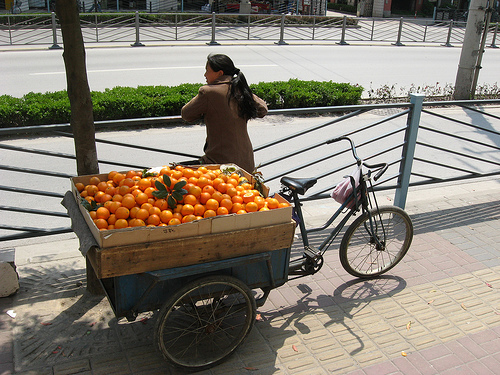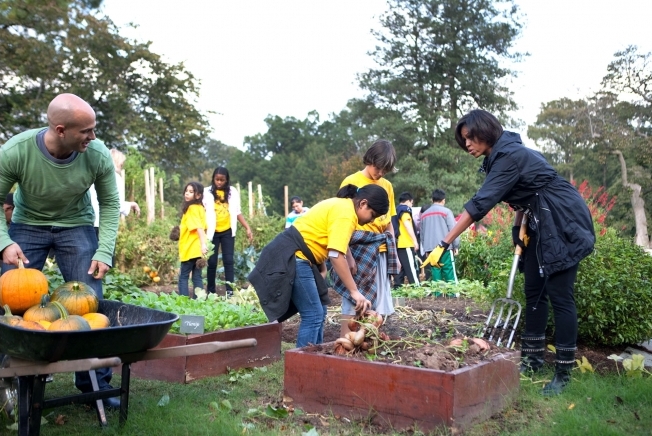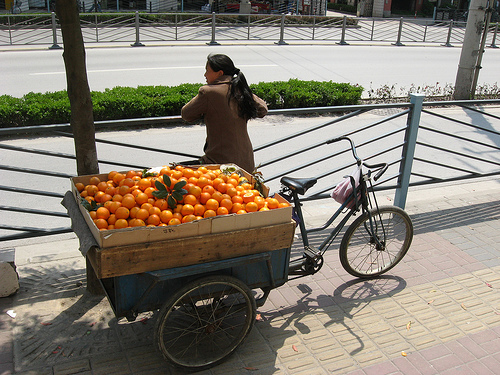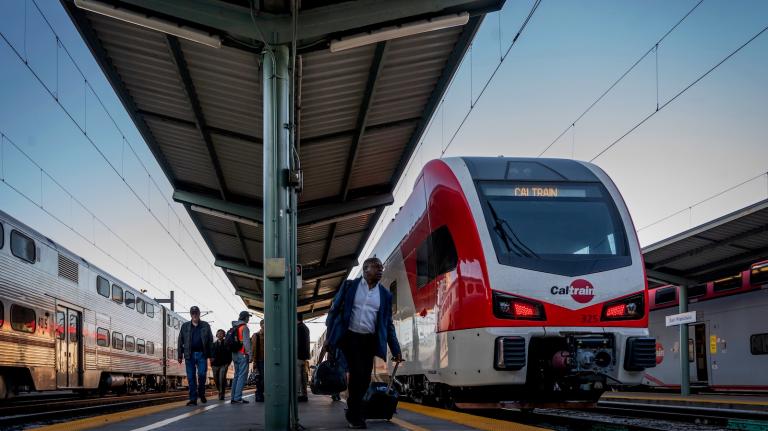 Photo: bricoleurbanismWhen planners create spaces that don’t work on a human scale, how can they be brought to life?
Photo: bricoleurbanismWhen planners create spaces that don’t work on a human scale, how can they be brought to life?
A Japanese architect studying the problem in China sees mobile bike vendors as one solution.
As discussed on the blog The Pop-Up City, architect Hiroyuki Shinohara has written about how people selling food and other goods use bicycles to follow their customers — keeping their own overhead low and creating dynamic urban spaces in the bargain. Some of them even have cookstoves on the back:
Shinohara is describing how these bikes are mainly used by inhabitants from the lower levels of the Chinese society…. He claims that these street vendors are a key feature in animating the various spaces of the city, which in many occasions would be empty and to some extend depressed….
Shinohara points out that in many occasions these customized bikes are both ecologically as well as socially sustainable, and that it is a problem that much of current urban development in China is eradicating the areas accessible for these bikes and favoring huge road infrastructure optimized for motorized traffic.
Here in New York, rolling street carts often create a sense of vitality and community on streetcorners and plazas that might otherwise be devoid of human interaction. Buskers can do the same.
Do you have examples in the places where you live? Let us know in the comments.
Hat tip to @rwoudstra for turning me onto the post and this very interesting blog.




